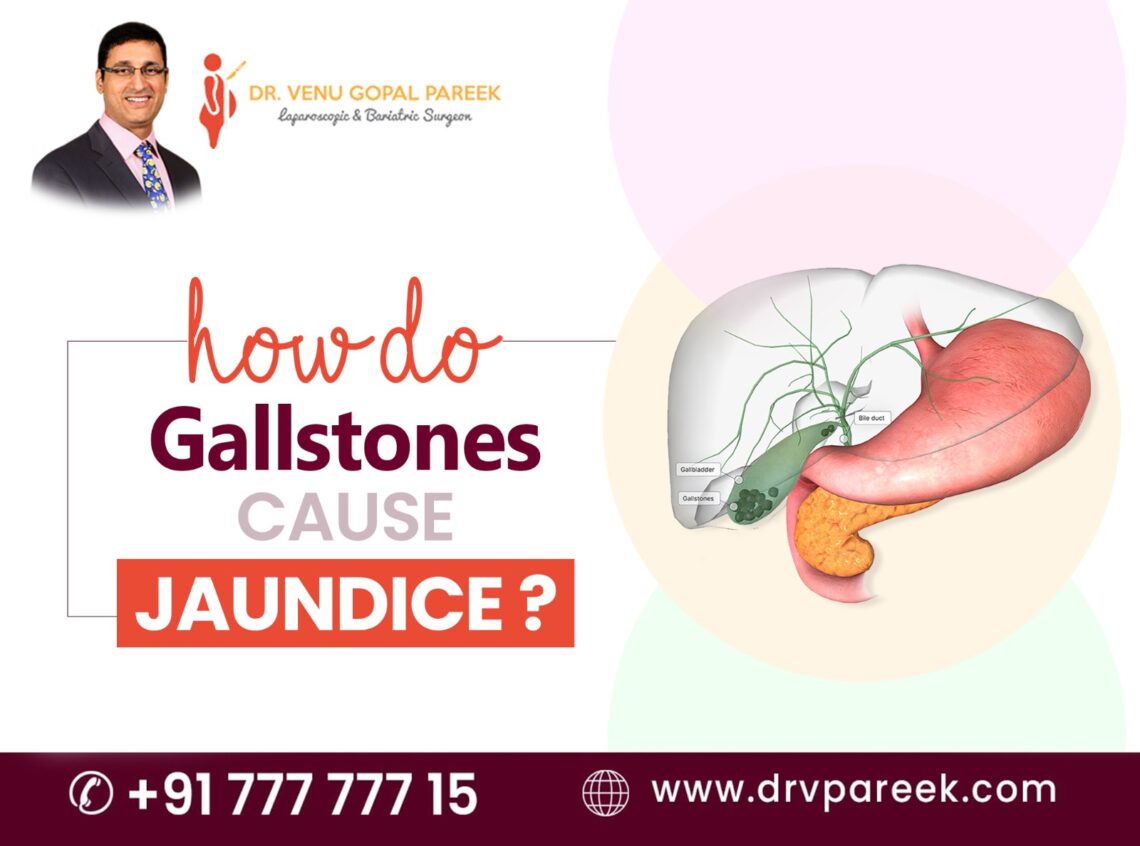
Jaundice is a condition caused by the buildup of high levels of bilirubin in the bloodstream. The primary symptom of this condition is that the skin, eyes, and top layer of the skin become yellow. Gallstones are one of the many things that can cause jaundice. In this article, let’s understand how gallstones may result in jaundice, as well as the importance of diagnosis and treatment.
What are gallstones?
The gallbladder is a small organ observed just under the liver. Gallstones are solid substances that look like stones made of cholesterol or bilirubin. All gallstones are not the same size; they vary in shape and size, ranging from a sand grain to a large golf ball. Generally, gallstones are formed as small crystal structures that develop into stones over time due to the imbalance of cholesterol, bile salts, and bilirubin.
How do gallstones cause jaundice?
The cystic duct connects the gallbladder and the main bile duct, which opens into the duodenum. When the gallstones travel from the gallbladder to the biliary tract through the cystic duct, sometimes they remain in the bile duct without moving into the duodenum. In such cases, it prevents the flow of bile fluid into the intestine. Thus, the components are absorbed into the bloodstream, which may cause jaundice over time.
Some other conditions, like impaired liver functions (inflammation and damage to liver cells) caused by gallstones, might also result in jaundice. The liver plays a major part in processing bilirubin and eliminating it from the body.
Gallstone-related complications like inflammation or damage to the liver might compromise its functions like metabolization and excretion of bilirubin from the body. This may result in increased levels of bilirubin, which can lead to jaundice.
Gallstones might result in even more severe complications, like choledocholithiasis. This condition can cause severe jaundice and some other symptoms like abdominal pain, fever, and chills.
Choledocholithiasis is a condition where the gall stones become stuck in the bile duct, blocking the bile flow completely. It is a medical emergency that needs immediate medical attention to prevent further complications like cholangitis or pancreatitis.
Diagnosis and Treatment:
Jaundice diagnosis, especially caused by gallstones, requires a combination of evaluation techniques like imaging studies (CT scans and MRCP) and laboratory tests. The imaging tests can help detect the location of gallstones blocking the bile duct or any other problems with the liver.
Treatment for jaundice caused by gallstones depends on many factors, like the underlying cause and severity of the condition. Treatment for gallstones blocking the bile ducts may involve:
Medication
In certain circumstances, doctors may suggest medications like ursodiol, which can dissolve gallstones formed from excess cholesterol. However, medication will be less effective if the stones are large or formed from calcium.
Endoscopic retrograde cholangiopancreatography (ERCP)
ERCP would be the first preferred treatment, especially when the gallstones are stuck in the bile ducts and causing complications like jaundice. This ERCP procedure involves removing the stones with the help of a flexible endoscope, which is sent into the bile ducts through the mouth. Once the probe reaches the tube, the stones are extracted with some specialized instruments.
Cholecystectomy
It is a gallbladder removal surgery suggested when other treatments fail or, particularly, if they are causing complications like jaundice. This procedure can be performed as an open surgery or using a laparoscopy.
As discussed above, jaundice can be one of the complications developed due to gallstones that block the bile ducts or due to liver dysfunctions and related complications. However, this condition can be treated in one way or another using medication or surgical techniques. Remember, prompt diagnosis and the right treatment are very important to prevent further severe complications, especially in cases of gallstone-induced jaundice.
If you have gallstone problems and are experiencing jaundice symptoms like eyes or skin becoming yellow, pain in the abdominal area, or dark urine, don’t hesitate to consult an expert gallstone doctor near you. Dr. Venugopal Pareek, one of the best laparoscopic surgeons in Hyderabad, has more than 18 years of experience in treating gallstone problems and related complications. He performs a complete evaluation and provides treatment accordingly to improve overall health and well-being.







